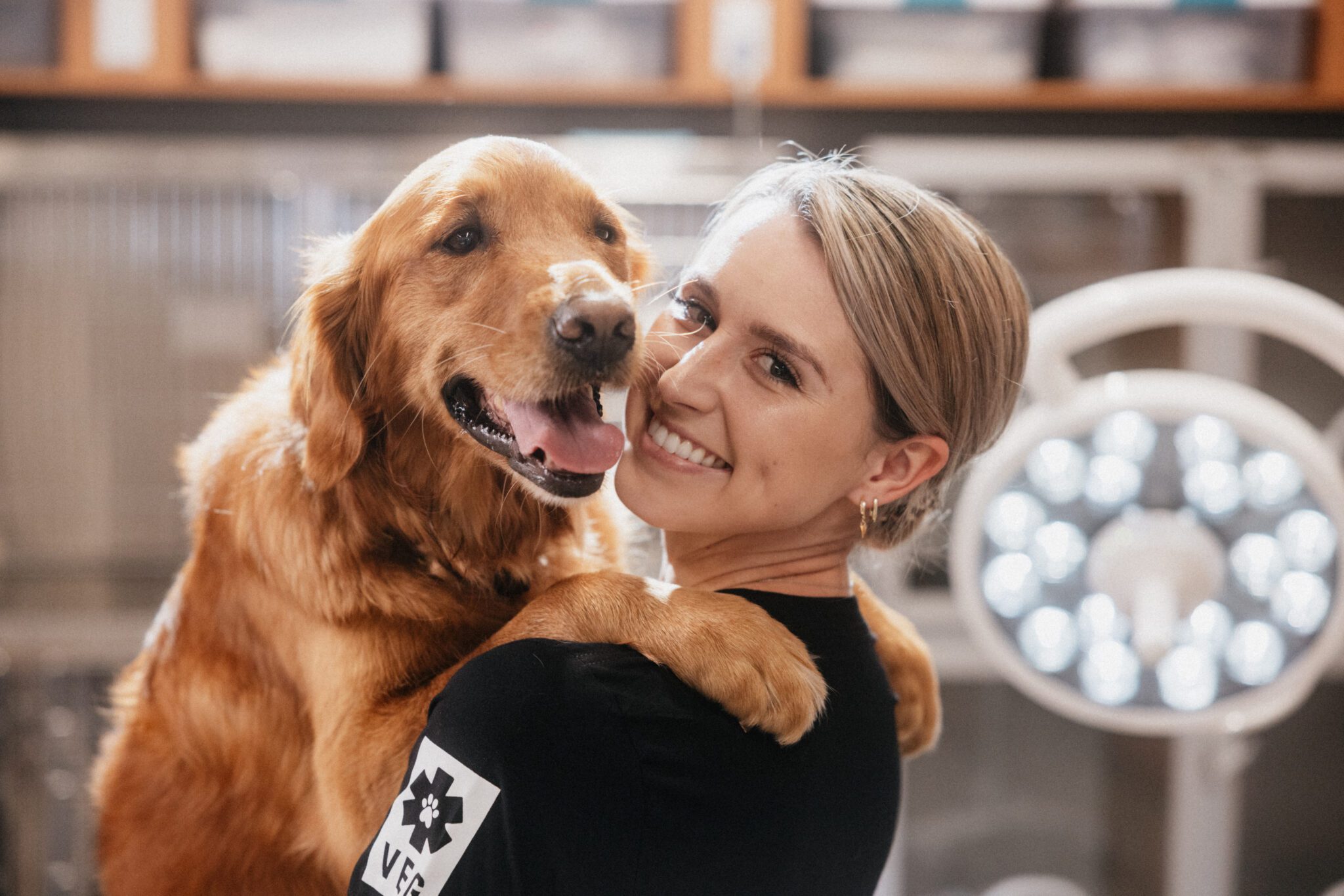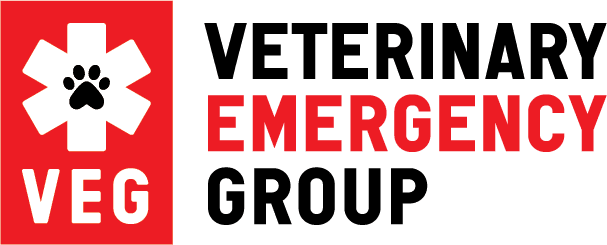
Kennel Cough in Dogs: Symptoms, Treatment and Prevention
Dr. Kayla Akkaya
Call & Speak with a doctor Open 24/7, Even Holidays!
Walk in today for:
Emergencies
Point-of-Care Ultrasound
Urgent Care
X-Rays
Diagnostics + Testing
End-of-Life Care
Surgery
Treatment + Hospitalization
One of the many joys of owning a dog comes with understanding their health intricacies. To empower dog parents like you, we at Veterinary Emergency Group (VEG) strive to provide invaluable information on common ailments that can affect your furry friend. In this blog post, we’ll delve deep into kennel cough: its symptoms, treatment, and prevention strategies.
What is Kennel Cough and What Causes It?
Kennel cough, or infectious tracheobronchitis, is a widespread infectious disease that primarily affects a dog’s respiratory system. It’s marked by a dry, hacking cough and can sometimes progress to more severe respiratory symptoms. While most dogs with kennel cough recover with appropriate care, it can be a significant cause of distress for both the pet and the owner.
Culprits Behind Kennel Cough
Kennel cough can result from various pathogens, with the most common being Bordetella bronchiseptica bacterium and the canine parainfluenza virus. It often spreads in areas with high dog populations like kennels, dog parks, and pet daycares. Factors such as stress, cold temperatures, exposure to dust or smoke, and travel can lower a dog’s immune defenses and make them more susceptible to catching kennel cough. Kennel cough is airborne and therefore spreads easily and rapidly.
Spotting Kennel Cough: Know the Symptoms
Below are the main symptoms:
The Signature Cough
The hallmark of kennel cough is a forceful, persistent cough that often has a dry and hacking quality to it. It may sound like your dog has something stuck in their throat or is trying to clear their throat. This cough can intensify following physical activity or at night.
Accompanying Symptoms: Additional Clues
In addition to coughing, other signs may point towards kennel cough. These include a runny nose, sneezing, lethargy, loss of appetite, and in some cases, a mild fever. Although these symptoms may be subtle, they can provide critical clues for an accurate diagnosis. Kennel cough can progress to pneumonia so its imperative that if you see any of these more severe signs, you have your pet seen right away.
The Diagnostic Journey: Confirming Kennel Cough
Below are the steps taken to diagnose this condition:
Clinical Examination: A Crucial First Step
Diagnosing kennel cough typically starts with a thorough clinical examination. The vet will evaluate your dog’s overall health, ask about their recent history and symptoms, and listen to their lungs. The characteristic kennel cough can often be provoked by gentle pressure on the dog’s windpipe (also known as their trachea) during this exam.
Beyond the Obvious: Additional Diagnostic Tests
While a vet can often presumptively diagnose kennel cough based on symptoms and history alone, they might recommend additional tests to rule out other conditions or determine if there’s an underlying disease that could be worsening your dog’s symptoms. These tests might include a complete blood count (CBC), chest x-rays, or even a bacterial culture from the throat or nose.
Navigating Kennel Cough Treatment
Read on to learn the best way to navigate this condition:
Antibiotics: The Mainstay of Treatment
While in some dogs, kennel cough can be self limiting, treatment for kennel cough often includes antibiotics to combat the bacterial causes of the disease, primarily Bordetella bronchiseptica. Doxycycline and trimethoprim-sulfa are commonly prescribed antibiotics.
Cough Suppressants: Alleviating Discomfort
While antibiotics target the underlying infection, cough suppressants provide symptomatic relief, making your dog more comfortable during the recovery phase. Cough suppressants are not a common treatment for kennel cough, but if severe enough, occasionally couch suppressants may be prescribed to alleviate discomfort if causing the pet to lose sleep due to coughing, or if underlying conditions worsen with coughing. However, these should be used under a vet’s guidance as they could mask more severe symptoms or complications.
Holistic Recovery: Supportive Care Measures
Supportive care is an essential part of managing kennel cough. Provide a calm and stress-free environment for your pet to speed up recovery. Also, ensure they’re well-hydrated and nourished, and limit physical activity to prevent triggering coughing fits.
Prevention Strategies
Below are ways to prevent kennel cough in dogs:
The Shield of Vaccination
Vaccination is the most effective strategy to prevent kennel cough. Several vaccines, including injectable, oral, and intranasal forms, can protect against some of the most common organisms causing kennel cough. Your vet can guide you on the best vaccination schedule for your pet. Remember, just because your pet is vaccinated does not mean they cannot get kennel cough – it will help their immune system fight off a possible infection, and prevent the course of disease from worsening. For example – vaccinated dogs may develop a minor cough rather than a cough and secondary pneumonia.
Hygiene Practices: A Barrier Against Infection
Maintaining good hygiene practices can also help prevent the spread of kennel cough. Regularly disinfect common areas and items your dog comes in contact with. If your dog is diagnosed with kennel cough, isolate them from other dogs to prevent transmission. If your dog has kennel cough, the typical time for isolation is 2 weeks after the cough resolves.
Call VEG if Your Dog is Showing Symptoms of Kennel Cough
At VEG, we’re available around the clock to provide exceptional and urgent care for your pets. If you suspect your dog might have kennel cough, don’t hesitate to reach out to your local VEG location immediately. Our team of dedicated veterinary professionals is ready to assist with prompt, compassionate care to ensure your pet’s speedy recovery.
Every dog is unique, and so is their health situation. That’s why VEG tailors its care approach to meet your pet’s individual needs. From diagnostic tests to treatment plans, our comprehensive services aim to keep your dog healthy and happy. Moreover, VEG’s commitment to pet health extends beyond immediate care. We believe in educating pet owners on preventive measures to ward off common diseases like kennel cough. We’re more than just a veterinary service provider; we’re your partner in ensuring your pet’s wellbeing.
In conclusion, kennel cough can be a daunting experience for any pet owner. But, with the right knowledge and support, it can be managed effectively. Ensure your dog is up-to-date with their vaccinations, maintain good hygiene practices, and always monitor your pet for signs of illness. If you have any concerns about kennel cough or other health issues, your local VEG is just a call away. Remember, when it comes to your pet’s health, you’re never alone. VEG is here to help, 24/7.

